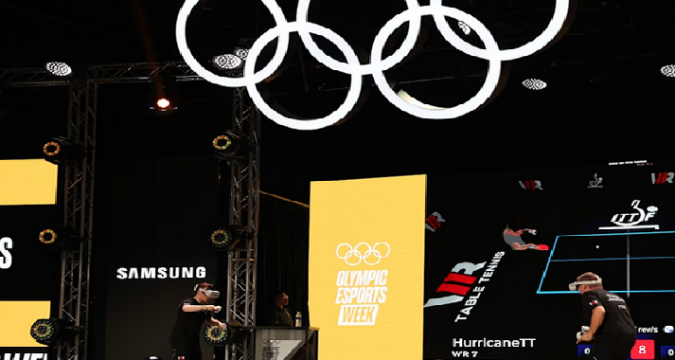
The Olympic Games have grown to become one of the biggest international sporting events in terms of both athlete participation and revenue. Over the past three decades, the Olympic sports industry has experienced enormous expansion, propelled by sponsorship deals, broadcast rights, and expanding globalization. But this growth also brings with it a unique mix of possibilities, challenges, and trends that help to create the Olympic business model’s present and future.
Key Trends Shaping the Olympic Sports Market
The Olympic sports market has been shaped by several prominent trends, including the surge in digital media, the growing influence of corporate sponsorship, and the inclusion of new sports to attract younger audiences.
One of the most significant trends is the shift toward digital and on-demand media. The traditional television broadcast, while still a major player, is no longer the sole platform for watching the Games. Streaming services and social media platforms have transformed how people engage with Olympic events. Fans can now access highlights, live updates, and athlete interviews in real-time, from virtually anywhere in the world. The Olympics are now consumed across multiple devices, providing advertisers with new avenues for targeted marketing and enabling viewers to experience the Games in a more personalized and interactive manner.
Another trend is the increasing dominance of corporate sponsorships. The Olympic Partners (TOP) program, which includes global brands like Coca-Cola, Samsung, and Visa, remains the backbone of Olympic revenue. Companies pay significant sums to align themselves with the Games, taking advantage of the billions of viewers who tune in worldwide. As sports become more commercialized, brands are keen to capitalize on the emotional connection audiences feel toward Olympic athletes and events.
Additionally, the inclusion of new sports such as skateboarding, surfing, and 3×3 basketball reflects the IOC’s attempt to appeal to younger generations. These sports bring new energy and demographics to the Games, helping maintain the relevance of the Olympics in a rapidly changing world where younger audiences are drawn to more contemporary, fast-paced, and culturally resonant activities.
Obstacles in the Olympic Sports Market
Despite its growth, the Olympic sports market faces several significant obstacles, most notably the rising costs of hosting the Games, environmental sustainability concerns, and the threat of over-commercialization.
One of the most daunting challenges is the financial burden placed on host cities. Organizing the Olympics requires significant investments in infrastructure, security, and transportation. These expenditures often lead to cost overruns and long-term debt, as seen in cities like Rio de Janeiro (2016) and Athens (2004). Many cities have found themselves struggling to justify the financial outlay, prompting fewer cities to bid for future Games. The financial risks associated with hosting are now one of the most significant obstacles to the continued expansion of the Olympic sports market.
Environmental sustainability is another challenge facing the Games. The sheer scale of the event, with its construction projects, energy demands, and global travel footprint, poses a significant environmental threat. Although the IOC has introduced measures to promote sustainability, such as carbon offset programs and eco-friendly venue designs, these efforts are often seen as insufficient. Future hosts will need to find more innovative and impactful ways to mitigate the environmental impact of the Olympics.
Additionally, the increasing commercialization of the Games poses a challenge to their integrity. Critics argue that the growing focus on profits and sponsorships threatens the core values of the Olympics—unity, fair play, and amateurism. The concern is that the Games are becoming overly commercialized, with athletes, events, and even Olympic ideals being commodified to serve corporate interests.
Opportunities for Growth in the Olympic Sports Market
Despite the obstacles, the Olympic sports market offers numerous opportunities for future growth. One promising avenue is the rise of digital technology. Virtual reality (VR), augmented reality (AR), and immersive experiences are expected to transform how audiences engage with the Games. These technologies offer the potential to bring fans closer to the action than ever before, allowing them to experience events from multiple perspectives and even simulate participation in certain sports. This opens up new revenue streams for both the IOC and its sponsors, as these experiences offer valuable branding and advertising opportunities.
The trend toward sustainability also presents opportunities. Cities that successfully host environmentally responsible Games may set new standards for future events, driving innovation in green construction, transportation, and energy usage. Sustainable Olympics will likely attract greater support from both public and private sectors, as environmental responsibility becomes increasingly important to global brands and audiences alike.
Additionally, the continued globalization of the Games offers a path for growth. As more countries and regions, particularly in Africa and Southeast Asia, participate in the Olympics, the market for sponsorships, broadcasting, and athlete development will expand. Emerging markets are poised to play a crucial role in the future of the Olympics, offering new audiences and economic opportunities.
In summary
The Olympic sports market is at a pivotal point in its evolution. With trends like digital media expansion, new sports, and corporate sponsorships driving growth, the market is thriving. However, obstacles such as the financial burden on host cities, environmental concerns, and commercialization threaten to hinder its progress. Still, with emerging opportunities in technology, sustainability, and globalization, the Olympic sports market has the potential to continue its expansion, adapting to the changing world while maintaining its status as the pinnacle of international sports competition.